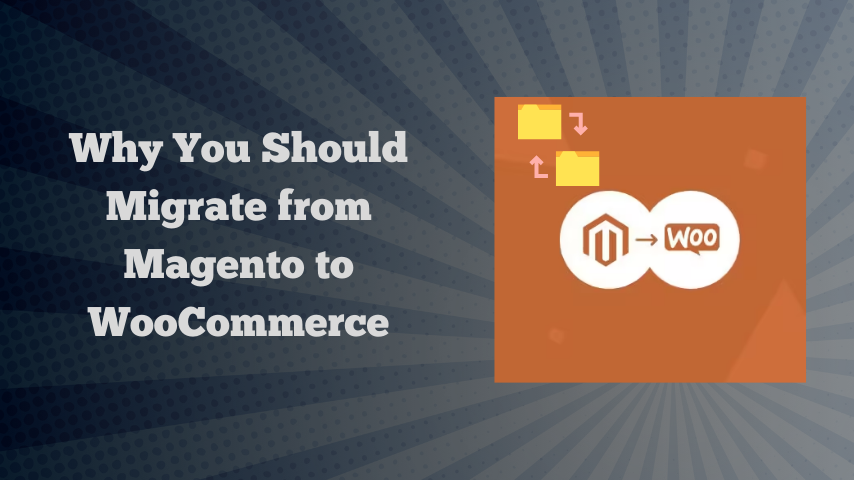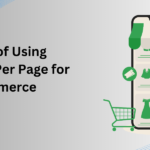Choosing the right eCommerce platform is crucial for business success. While Magento is a powerful tool with a dedicated user base, WooCommerce has emerged as a highly popular choice due to its flexibility, ease of use, and affordability. As many businesses consider the Magento to WooCommerce migration process, they often find WooCommerce better suited for scaling and adapting to new market demands.
In this article, we’ll explore why WooCommerce is a great option for Magento users looking for a change and the benefits of making this migration.
Also Read About Benefits of Adding a Product Enquiry Form for WooCommerce
1. Cost-Effectiveness and Affordability
Magento’s enterprise-level solution can be quite costly, especially for smaller businesses or those looking to keep operational costs low. WooCommerce, on the other hand, is open-source and free to use, only requiring users to cover costs for hosting, optional plugins, and themes. With WooCommerce, businesses can still access premium features and customization without a hefty price tag.
Why It Matters: By saving on platform fees, businesses migrating from Magento to WooCommerce can allocate more resources toward marketing, customer service, or product development.
2. Flexibility and Customization
WooCommerce’s modular approach is one of its biggest advantages. The platform integrates seamlessly with WordPress, allowing users to choose from thousands of plugins and themes to build an online store that matches their brand. Magento also offers customization, but the learning curve and maintenance requirements can be challenging for small teams.
WooCommerce allows users to quickly modify store elements, from checkout fields to product galleries, using plugins like Conditional Checkout Fields and Product Video Gallery. The customization possibilities with WooCommerce are extensive and, in many cases, easier to implement than on Magento.
Why It Matters: With WooCommerce’s adaptability, businesses can tailor their store to specific business goals and customer needs without hiring dedicated Magento developers.
3. User-Friendly Interface
The WooCommerce dashboard is intuitive and user-friendly, which allows users with minimal technical knowledge to manage their store effectively. Magento’s platform, while robust, often requires a steep learning curve and is sometimes overwhelming for users without developer experience.
Why It Matters: Store managers can easily handle day-to-day operations in WooCommerce without needing constant technical assistance. This simplicity also shortens the onboarding process for new team members.
4. SEO-Friendly Features
Built on WordPress, WooCommerce leverages WordPress’s SEO capabilities, which makes it a strong choice for businesses focused on increasing their online visibility. With tools like Yoast SEO and All in One SEO Pack, WooCommerce offers straightforward SEO optimization options that help increase organic search visibility.
Magento does have built-in SEO options, but WooCommerce provides greater flexibility with WordPress’s content management tools.
Why It Matters: WooCommerce gives businesses a competitive advantage by making it easier to optimize for search engines, leading to increased traffic and potential sales.
5. Scalability for Growing Businesses
WooCommerce supports scalability, allowing businesses to start small and expand over time. With the right hosting plan and server setup, WooCommerce can handle large product catalogs and high traffic levels without sacrificing performance. Additionally, it has built-in support for load balancing and caching solutions that help keep websites running smoothly.
Why It Matters: WooCommerce’s scalability makes it a great fit for small to medium-sized businesses as well as larger enterprises looking to expand without incurring the high costs associated with Magento’s enterprise solution.
6. Community Support and Resources
WooCommerce has a large, active community of developers, designers, and users who continuously contribute to its growth and success. This means a vast array of free resources, tutorials, forums, and guides are available to WooCommerce users, making troubleshooting or finding tips much easier. In addition, WooCommerce’s official documentation and support network offer guidance on every aspect of managing and customizing a WooCommerce store.
Magento also has a supportive community, but finding affordable resources can sometimes be more difficult due to Magento’s technical demands.
Why It Matters: The WooCommerce community’s extensive resources can help reduce costs associated with development, as many solutions are readily available online.
7. Strong Integration Capabilities
WooCommerce easily integrates with a wide range of marketing, payment, and analytics tools. It has built-in compatibility with Google Analytics, Facebook Ads, and Mailchimp, and integrates seamlessly with other popular business solutions. For example, Google Address Autocomplete for WooCommerce speeds up the checkout process and reduces cart abandonment.
Magento also supports third-party integrations but can sometimes require custom development to fully integrate complex tools.
Why It Matters: WooCommerce’s extensive integration options allow businesses to streamline workflows and improve marketing efforts without requiring custom coding.
8. Faster, Easier Migration Process
Migrating from Magento to WooCommerce doesn’t need to be complex. WooCommerce offers a Magneto to WooCommerce migration plugin specifically designed to simplify the migration process, ensuring that products, categories, and customer data transfer seamlessly. The plugin offers tools to securely move all necessary data, reducing the risk of downtime or data loss during the migration.
Conclusion: Make the Switch to WooCommerce for Long-Term Success
Migrating from Magento to WooCommerce can be transformative for businesses looking to lower costs, improve flexibility, and optimize the customer experience. WooCommerce provides robust customization options, superior SEO capabilities, and ease of use, which allow businesses to scale efficiently. With tools like the Magento Migration for WooCommerce plugin, migration is seamless, allowing for minimal downtime.
Also Read About Simplify Checkout Process with WooCommerce Checkout Page Editor



